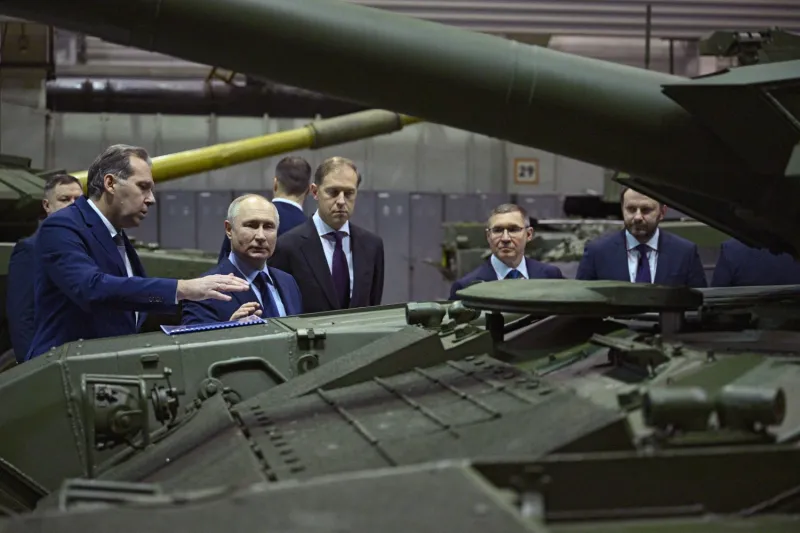
作者/Author(s): Marc R. DeVore and Alexander Mertens
網站來源/Source: Foreign Policy
日期/Date: 11/14/2024
關鍵字/Keywords: 經濟、俄羅斯、俄烏
摘要:
隨著川普即將成為美國下一任總統,俄烏衝突無論如何都會結束。多數專家認為俄羅斯擁有能夠長期支撐戰爭的資源,但仔細檢視後會發現其實並非如此。
- 俄羅斯的經濟在西方協調制裁下仍能保持韌性,是因為俄羅斯利用制裁漏洞持續出口重要商品,並透過有效的總體經濟管理學,維持金融體系穩定。
- 儘管經濟數字亮眼,但俄羅斯經濟仍因為戰時經濟嚴重緊縮與西方制裁而進入僵局。
- 無論投入多少資源,還是跟不上俄羅斯損失戰車和火炮的速度。
- 目前,俄羅斯尚未面臨大量失業潮,大多數人不是被徵召入伍,就是加入俄羅斯國防企業。但是隨著戰事延長,軍隊和國防公司必須競爭越來越稀缺的勞動力。
- 俄羅斯目前的經濟成長主要是透過軍事支出來支撐,但這種成長無法長期實現,對民生經濟的貢獻也非常有限。
- 俄羅斯困於這些困境,無法將戰事延續到2025年,屆時俄羅斯的關鍵武器系統也將耗盡。
- 此外,俄羅斯在簽訂和平協議方面也面臨多重困境:
- 如果俄羅斯繼續把軍事和國防工業放在首位,可能會陷入經濟衰退。
- 若維持高水平的國防支出,並增加承平時期的軍事力量,經濟可能停滯不前。
- 俄羅斯可能會為了獲取經濟資源和維持軍事力量,對外發起征服行動,或者將軍事力量出租給其他政府。
- 對西方的警示:
- 俄羅斯的經濟和資源短缺,無法無限期支撐對烏克蘭的戰事。因此,西方必須保有耐心和決心,等待俄羅斯自取失敗。
- 俄羅斯的軍事部門過於龐大,就算俄烏衝突結束,也不代表俄羅斯會解散其軍隊。
- 俄羅斯的經濟問題可能會造成歐洲動盪,因此政策制定者在聚焦如何結束戰爭時,也應規劃減輕未來潛在威脅的措施。
Summary:
As the US elected Donald Trump as their next president, the war in Ukraine will end regardless of the outcome. Most experts feel that Russia has the resources to sustain the war for many years, but on closer inspection, it does not.
- Russia's economy remained resilient despite coordinated Western sanctions because it exploited sanctions loopholes to continue exporting critical commodities and managed its macroeconomics to maintain the health of its financial system.
- Despite having polished economic numbers, Russia's economy is entering a deadlock due to severe economic strains from the wartime economy and Western sanctions.
- Russia lost more vehicles and artillery quicker than it could replace regardless of the resources invested.
- Russia currently does not have an unemployment problem because most people were either conscripted or entered Russian defense firms. However, as the war continues, the military and defense companies have to compete over manpower.
- Russia's current economic growth is enhanced artificially through military expenditures, which are unsustainable in the long term and do not benefit the civilian economy much.
- Given the predicaments, Russia could not wage the current war beyond 2025, when it depletes its critical weapons systems.
- Russia also faces dilemmas when concluding a peace agreement:
- Russia may enter a recession if it continues to prioritize the military and defense industry.
- Russia's economy could stagnate if it maintains high levels of defense spending and increases peacetime military.
- Russia could go on a conquest for economic resources to sustain its military or rent its military to other governments.
- Caveats for the West:
- Russia's economy could not support the war against Ukraine forever due to resource strains. The West must be patient and committed to ensure Russia's defeat.
- Russia's military sector is oversized. Therefore, ending the war in Ukraine does not mean Russia will demobilize its forces.
- Russia's economic problems may cause insecurity in Europe. Therefore, policymakers should plan on mitigating future threats while focusing on terminating the war.
